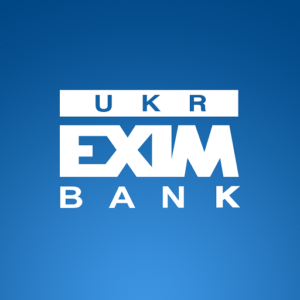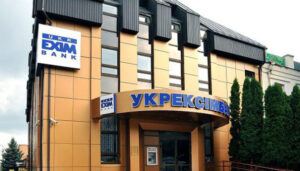
Copper prices on Tuesday for the first time exceeded the mark of $ 12 thousand per ton.
Quotes of three-month futures for copper on the London Metal Exchange (LME) by 13:44 Q1 rose by 1% to $ 12,059 per ton.
Since the beginning of the year, the metal has risen in price by about 37%. If the same dynamics will be shown at the end of the year, it will be the strongest rise since 2009.
Quotes are supported by serious problems at some deposits and changes in trade flows due to the tariff policy of U.S. President Donald Trump.
The possibility of Trump’s introduction of duties on copper is one of the main factors in the growth of prices for this metal. The states have significantly increased its imports, forcing production companies from other countries into a highly competitive battle for the metal.
Outages at major mines in Chile and Peru and delays in Indonesia have reduced production by 8-12%, and the slow pace of new project development is limiting the global supply of concentrate.
In addition, Chinese smelters have agreed to the lowest-ever zero treatment and refining tariffs for 2026, which only emphasizes supply constraints and gives miners an additional bargaining advantage.
Meanwhile, demand in the electric vehicle, data center and power grid segments remains strong, with Goldman Sachs forecasting more than 60% growth in copper demand between now and 2030, Trading Economics wrote.
Earlier, the Experts Club information and analytical center released a video on global copper production and leading producing countries – https://youtube.com/shorts/_h8iU50z8C0?si=a-XkgGEfeUxseQNa.

The board of the state-owned Ukreximbank has decided to terminate the bank’s branches in Ivano-Frankivsk and Uzhgorod, while a representative office of the bank will be established on the basis of the branch in Ivano-Frankivsk.
According to the bank’s message in the information disclosure system of the National Commission on Securities and Stock Market (NCSSM), the decision was made on December 17, 2025, as part of the transformation of the regional network and to improve operational efficiency, the last working day of branches in Ivano-Frankivsk and Uzhgorod determined March 19, 2026.
It is noted that on the basis of the bank’s branch in Ivano-Frankivsk (10 Nezavisimosti Street) will be created a representative office of the bank in this city, the first working day of which is defined as March 20, 2026. The branch in Ivano-Frankivsk serves corporate, medium and retail clients, as well as municipalities and the municipal sector.

Dniprometiz-TAS LLC (Dnipro), owned by Ukrainian businessman Serhiy Tihipko, intends to conclude an additional loan agreement with Ukreximbank (Kyiv) to open a non-revolving credit line with a limit of EUR 2.020 million (equivalent to UAH 99,934,450 thousand) for a term of 36 months.
According to the company’s report in the information disclosure system of the National Commission for the Regulation of Energy and Public Utilities (NCCPE), the general meeting of participants of Dniprometiz-TAS LLC on December 22, 2025, decided to grant consent for the company to perform legal acts which collectively meet the criteria of a significant transaction, namely, the conclusion with JSC Ukreximbank, within the framework of general loan agreement No. 25-63KG0010 dated September 25, 2025, of an additional agreement for EUR 2.02 million.
In addition, the meeting participants agreed to conclude an agreement on the pledge of the company’s movable property (47 units of equipment with a market value of UAH 58,708,300) as collateral for the performance of obligations under general loan agreement No. 25-63KG0010.
It is specified that the meeting was attended by company participants who collectively hold 100% of the votes and have the right to vote on all items on the agenda. 100% of all company participants voted in favor of the decision.
As reported, the general meeting of participants of Dniprometiz-TAS LLC on September 4, 2025, decided to approve the conclusion of a general loan agreement with JSC Ukreximbank with a credit transaction limit equivalent to UAH 600 million.
According to the results of January-September of this year, Dniprometiz-TAS LLC reduced its net profit by 2.9% compared to the same period last year, to UAH 11.727 million. At the same time, the company’s undistributed profit at the end of September amounted to UAH 274.763 million.
In 2024, Dniprometiz-TAS increased its net profit by 47.7% compared to 2023, to UAH 14.197 million from UAH 9.610 million, while net income increased by 22.7%, to UAH 3 billion 285.688 million. At the same time, the company’s undistributed profit at the end of 2024 amounted to UAH 263.048 million.
According to the results of 2023, Dniprometiz reduced its net profit by 2.6 times compared to 2022 – to UAH 9.658 million from UAH 24.733 million. Over the past year, net income increased by 8.2% – to UAH 2 billion 677.836 million.
According to the results of 2022, Dniprometiz reduced its net profit sixfold compared to the previous year, to UAH 25.572 million, while net income increased by 1.1%, to UAH 2 billion 474.397 million.
Dniprometiz-TAS manufactures metal products from low-carbon steels. The company’s capacity is 120,000 tons of products per year.
T.A.S. Overseas Investments Limited (Cyprus) owns a 98.6578% stake in Dniprometiz LLC.
The authorized capital of Dniprometiz-TAS LLC is UAH 83.480 million.

State enterprise “International Airport ”Boryspil” (Kiev) on December 22 announced a tender for personal insurance of drivers against accidents on transport, according to the system of electronic public procurement Prozorro.
The expected cost of purchasing services is UAH 120,968 thousand.
Security of the tender offer is not required.
The deadline for submission of bids is December 30.

As part of its expansion into foreign markets, the Ukrainian bakery chain Lviv Croissants has opened a new location in Poland in the popular ski resort town of Zakopane, according to a Facebook post by its press service.
“We have our own atmosphere here: a cozy space with mountain accents, over 40 comfortable seats, and a menu that we have supplemented with new items specifically for this mood. And it is here that self-service kiosks have appeared for the first time in our Polish chain,” the company said in a post.
Lviv Croissants has expanded its menu with new items at the new location. In addition to traditional croissants with various fillings, salads, and drinks, the must-try items in Zakopane are the local mountain croissant with cheese and cranberries, as well as the Petit Déjeuner breakfast basket.
The opening of the new location in Poland was facilitated by the company’s first establishment in the country, which operates in Krakow.
Lviv Croissants is a Ukrainian international restaurant franchise chain founded in 2015. It specializes in making croissants. The brand entered the European market in September 2022. According to the company’s website, the brand entered the European market in September 2022. Currently, the chain has 178 establishments throughout Ukraine, 11 in Poland, and one each in Slovakia and the Czech Republic. In April 2025, the Lviv Croissants chain opened its first establishment in South Korea, entered the Norwegian market in November, and launched its second establishment in Washington State, USA, in December.
The beneficiaries of the enterprise are PP “Firma ”Infobud,” which owns 50% of the shares, Yevhen and Andriy Halytskyi (20% each), and Yuriy Zagrodskyi (10%).